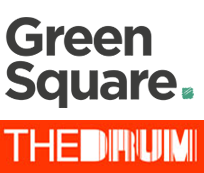15th July 2015
Back in May, I wrote about US mobile phone giant Verizon buying AOL for $4.4bn, and about how it was a great deal for both acquired, and, especially, the acquirer.
Two months on I still hold by that view, especially following the news late last week that that AOL was stalking mobile ad network Millennial Media, and was willing to shell out between $300 to $350m.
AOL has already made inroads into the video side of things with its acquisition of Adap.tv, so Millennial (which was apparently also piquing the interest of Twitter before the latter’s recent management travails) would complement that business perfectly; it would also help AOL distance itself from its “legacy business” stigma (remember those AOL CDs we all used to get bombarded with just before the dot com crash? Or those Joanna Lumley-voiced email alerts?).
At last, AOL is beginning to build a credible mobile ad story. And let’s not forget that last month the mighty Microsoft agreed to hive off the vast majority of its digital display ad business to AOL, meaning that the latter is more of an advertising business than, to use a bit of late 20th-century, pre-bubble-burst jargon, a ‘portal’. (This arrangement will begin next January.)
Some commentators have wondered why anyone would want to pay as much as $350m for a company whose share price has been languishing in the doldrums, but there’s more to Baltimore-based Millennial than meets the eye. First of all, it built its business as a mobile one from the very beginning, unlike AOL (although its business was built on display advertising, a format out of favour as video and native advertising have become more popular).
Secondly, it has been on its own acquisition spree over the past couple of years. Last September it bought Nexage, a mobile ad exchange, for $108 million; the month before that, it snapped up Jumptap, another ad network (and one in which WPP has a small stake in), but with a crucial difference – it is a “programmatic and mobile-first” platform; preceded roughly six months before that by its purchase of mobile media buying and targeting player Metaresolver.
These were good buys, but as many commentators have observed, Millennial didn’t quite know what to do with them. If all these bits can be incorporated into AOL’s existing suites of technology, there’s a very good chance of building a slick, automated (and fully trackable) mobile media solution of the kind that clients are increasingly demanding these days.
Thirdly, Millennial Media is one of a handful of companies that sell mobile ads across numerous websites and apps (it claims it reaches over 670 million unique users a month globally) with the potential to deliver ads to more than 65,000 apps. Despite Wall Street having fallen out of love with Millennial ever since it floated three years ago, that’s an incredibly compelling offer.
And it makes strategic sense for parent company Verizon. Expanding its reach in mobile advertising would help boost its revenue in the long-term as more and more people watch videos and other content on mobile devices. More than 60 per cent of digital media consumption in the U.S. happens on mobile devices, according to ComScore’s 2014 survey. As voice calls and SMS texts decline in importance (they no longer generate the profits they used to as the mobile market/mobile ownership approaches saturation point in the developed world), advertising revenue becomes more important than the thinning margins derived from conventional voice/data/SMS tariffs.
Verizon has one thing going for it: huge amounts of data from its network users (well over 130 million of them) – but has never really found a way to leverage it. By combining all that data with solutions from AOL and hopefully Millennial, Verizon can start offering brands highly-targeted mobile ads in a way that might see it rivalling Facebook.
If AOL does eventually buy Millennial – and I’m sure we will know imminently – it may have one other effect. The only indie mobile ad network that can compete on size with Millennial is InMobi. Earlier this year Google allegedly made an approach to founder Naveen Tewari, but was rebuffed, Tewari saying he wanted his company to remain independent. However, with Millennial off the market, the value of InMobi will soar, and Mr Tewari may find it difficult not to succumb. Certainly, he may find it difficult to compete in a market dominated by the likes of Facebook and Verizon/AOL.
